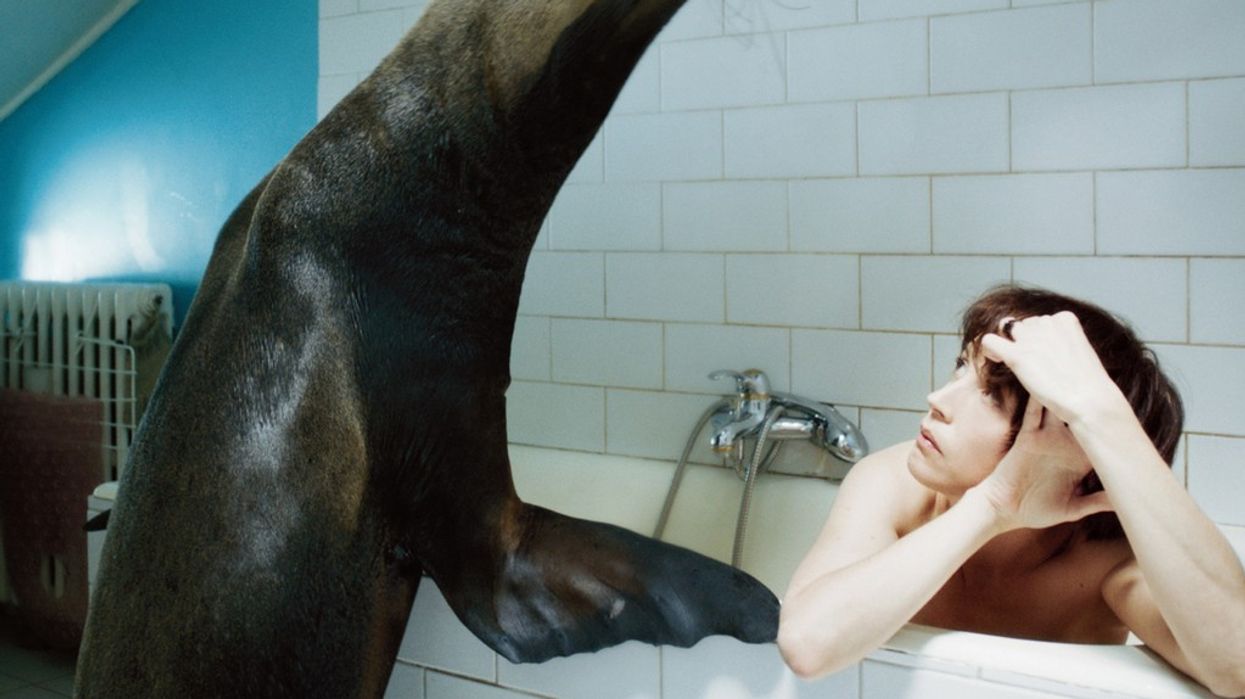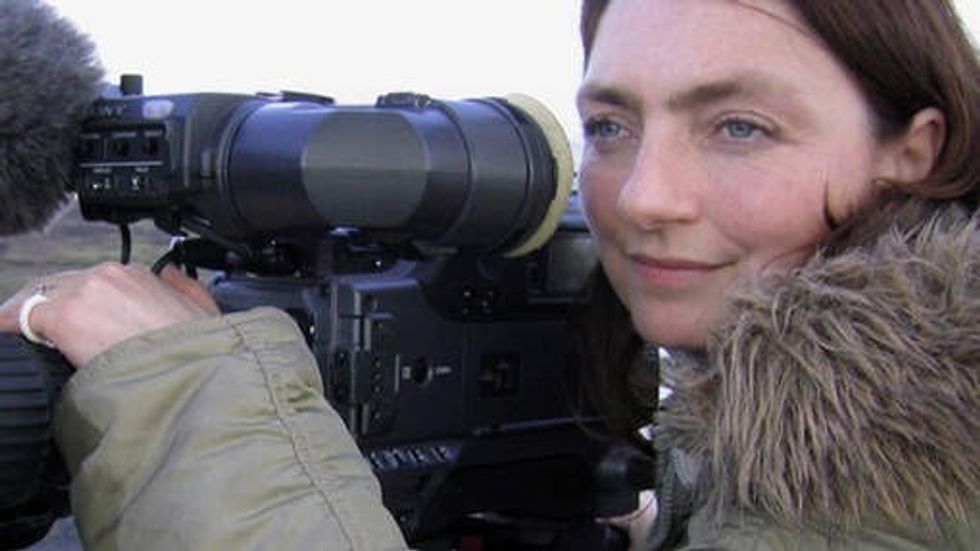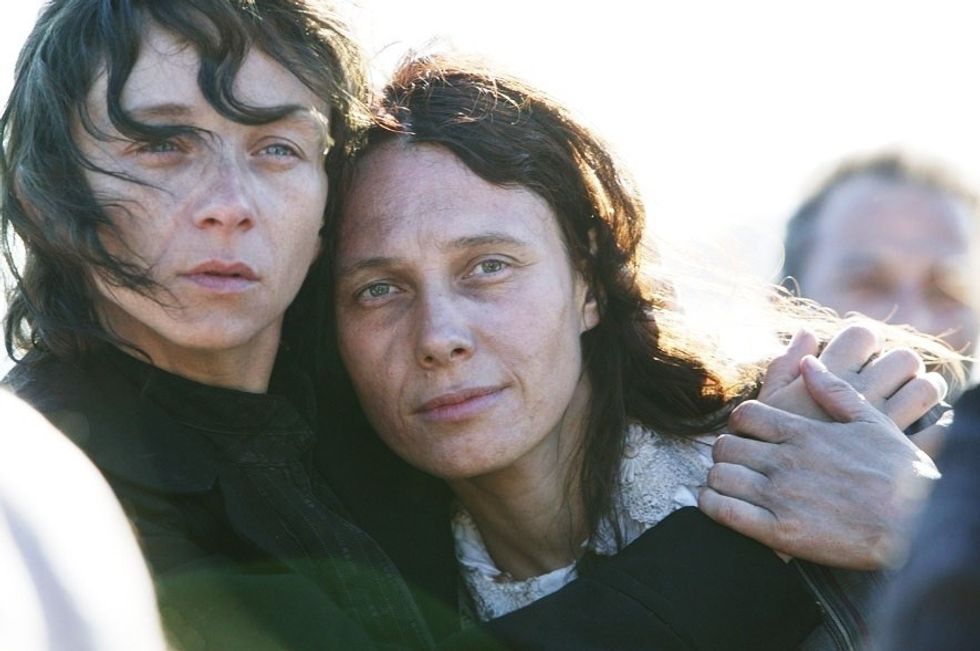This Video Essay Will Make You Fall in Love With Cannes-Winning Auteur Sólveig Anspach
“I'd trade a hundred movies just to have one more minute of film directed by Sólveig Anspach.”

[Editor’s Note: We’ve invited one of our favorite video essayists, Scout Tafoya, to premiere some exclusive works on No Film School. Please enjoy his premiere submission, a tribute to the films of his friend and celebrated director, Sólveig Anspach.]
There's a very good chance you've never heard the name Sólveig Anspach, but her name meant something to a large group of international cinephiles. She was a French-Icelandic director who'd garnered many international awards, going all the way back to her first film, the autobiographical drama Haut les coeurs! which took home Best Director at the Ghent International Film Festival.
She received the François Chalais Award at Cannes for her documentary Made In the USA, a sensitive yet furious critique of the capital punishment system, which is still used by justice organizations to educate. She's since won prizes at Locarno International Film Festival, Seville European Film Festival and the Venice Film Festival. Most recently she was awarded a prize for L'Effet Aquatique at this year’s Cannes' Directors' Fortnight but she wasn't there to collect it.
I was on a bus back to New York from Philadelphia when my friend, the film critic Neil Young, told me that Sólveig Anspach had died. I took a second. It didn't register fully. She couldn't be dead. I couldn't move anywhere, the bus was too cramped but I wanted to run, screaming. But I didn't. I never do. At best I wait until I'm alone and cry for a few minutes, knowing I have time to pull myself together. How could she be gone? It felt like I'd spoken to her yesterday. That wasn't true. It had been years. But she made me feel like I'd known her a lot longer. Her films made me feel like I'd known her all my life.
Movies like Sólveig's are so differently presented that they'd seem foreign even if she didn't film in French and Icelandic.
The first first time I wrote to Sólveig, I thought I'd be hearing from an assistant, but she wrote me back personally. I smiled so broadly my face hurt. Couldn't believe that someone that I have thought of as a major player on the international film scene had time to talk to some stupid kid. She was shocked I knew who she was. I know how she feels now. What it means to pour your heart into a film and have the response be muted or non-existent. That's what I learned most from her. Humility. To me she was a superstar; the next Claire Denis or Chantal Akerman.

Cinema is the moment when someone is suddenly transported and realizes that they could be happy for what feels like the first time. Sólveig did that better than nearly anyone.
Sólveig believed that film had to reflect all of life's complexities or what good is it? She saw the same interplay of darkness and light as painter James Whistler. She saw that something that was meant as a beacon of hope or sign of life could easily become menacing or haunting if viewed at the wrong angle. Her work reflected the idea that life does not limit itself to human's invented moral binary. It just keeps going and showing you the folly of believing it can be understood.

But Sólveig never let the unknowability get her down for long. She wasn't afraid of anything. Her films boil over with life so rich and full it gets tangled. Watching the works of some major directors you can forget that the least important and most hopeless part of our days or our lives can determine who we are. What we become. What is most cinematic are the glances we shoot to friends in need. When we recognize the same human error in the eyes of someone who looked so different on the surface. Cinema is the moment when someone is suddenly transported and realizes that they could be happy for what feels like the first time. Sólveig did that better than nearly anyone. Her characters want to scream and cry, just like I did on that bus, and she wasn't afraid to introduce us to our own repressed feelings and make us laugh a minute later.
Ever since Neil told me that she died, movies don't seem to have the same joy they used to. Mostly because I don't see the same spark I saw in her work. I could watch her films and feel such profound empathetic yearning, such human ache for her characters, and just picture her smiling. It's like she knew how profoundly she could get us to feel for her characters. I haven't seen anything in months that made me feel anything the way her work makes me feel. I'd trade a hundred movies just to have one more minute of film directed by Sólveig Anspach.













